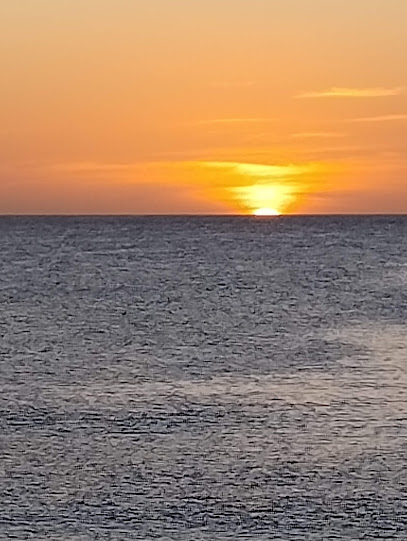
The Hidden Gem of Nauru: Uaboe District
Uaboe District, nestled in the serene island nation of Nauru, offers a unique glimpse into the heart of this remote Pacific paradise. With its blend of natural beauty, cultural richness, and friendly locals, Uaboe is a must-visit for those seeking an off-the-beaten-path adventure. The district boasts stunning coastal views, where the azure waters meet the pristine white sands, providing perfect spots for relaxation and beach activities. The calm lagoon is ideal for snorkeling, allowing visitors to explore the vibrant marine life that thrives just beneath the surface. For those interested in history, Uaboe holds significant World War II relics, offering a poignant reminder of the island's past. Uaboe is also a place where you can immerse yourself in traditional Nauruan culture. Engage with the local community, witness traditional crafts, and enjoy the simple yet delicious local cuisine. The district's small size ensures that you can explore it thoroughly, making personal connections and creating unforgettable memories.
Local tips in Uaboe District
- Visit during the dry season (May to October) for the best weather.
- Carry cash, as ATMs and card facilities can be limited.
- Respect local customs and dress modestly, especially in villages.
- Try local dishes like coconut fish and tropical fruit.
- Bring your own snorkeling gear to explore the lagoon.
The Hidden Gem of Nauru: Uaboe District
Uaboe District, nestled in the serene island nation of Nauru, offers a unique glimpse into the heart of this remote Pacific paradise. With its blend of natural beauty, cultural richness, and friendly locals, Uaboe is a must-visit for those seeking an off-the-beaten-path adventure. The district boasts stunning coastal views, where the azure waters meet the pristine white sands, providing perfect spots for relaxation and beach activities. The calm lagoon is ideal for snorkeling, allowing visitors to explore the vibrant marine life that thrives just beneath the surface. For those interested in history, Uaboe holds significant World War II relics, offering a poignant reminder of the island's past. Uaboe is also a place where you can immerse yourself in traditional Nauruan culture. Engage with the local community, witness traditional crafts, and enjoy the simple yet delicious local cuisine. The district's small size ensures that you can explore it thoroughly, making personal connections and creating unforgettable memories.
When is the best time to go to Uaboe District?
Iconic landmarks you can’t miss
Nauru International Airport
Experience the welcoming gateway to Nauru at Nauru International Airport, where your island adventure begins with warmth and hospitality.
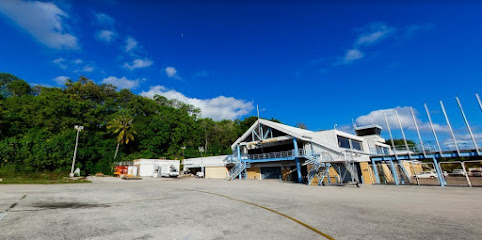
Nauru Australian Immigration Detention Center
Explore the Nauru Australian Immigration Detention Center - a key site reflecting the complexities of immigration policy and human rights in the Pacific.
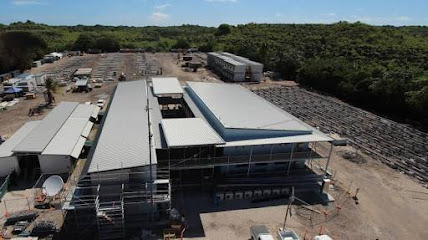
Capelle and Partner
Explore Capelle and Partner, the ultimate shopping destination in Ronave, Nauru, blending local charm with modern retail experiences.
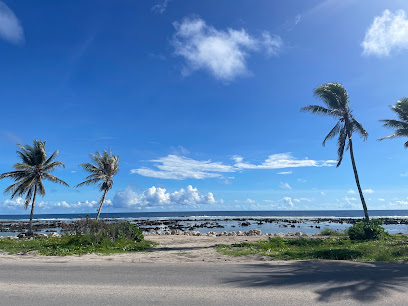
The Bay Restaurant
Experience the best of Nauruan cuisine with breathtaking ocean views at The Bay Restaurant, a must-visit dining destination in Anibare.
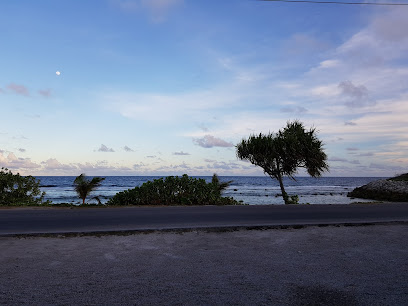
Ewa Lodge
Discover the charm of Nauru at Ewa Lodge, your comfortable retreat for relaxation and adventure on this enchanting island.
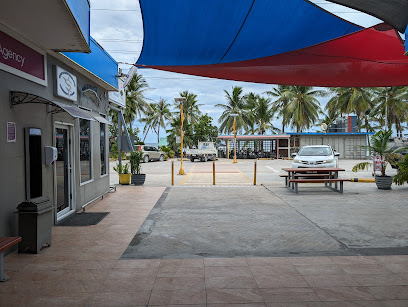
Budapest Hotel
Experience comfort and local charm at Budapest Hotel in Anabar, your perfect getaway to explore the natural beauty of Nauru.
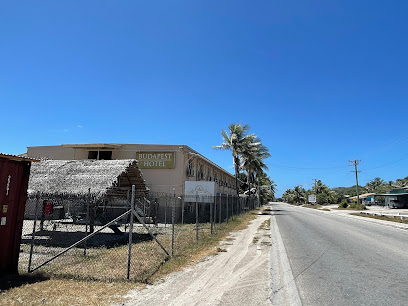
Geography of Nauru
Explore the enchanting island of Nauru, a tropical paradise of stunning landscapes, vibrant marine life, and rich cultural heritage.
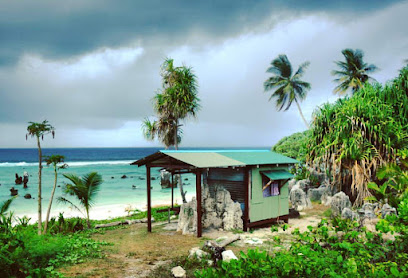
Od-N Aiwo Hotel
Discover the tranquil charm of Nauru with a stay at Od-N Aiwo Hotel, your gateway to island adventures and local culture.

Nauru Ron Hospital
Discover the vital role of Nauru Ron Hospital, the island's primary healthcare facility ensuring well-being for locals and tourists.
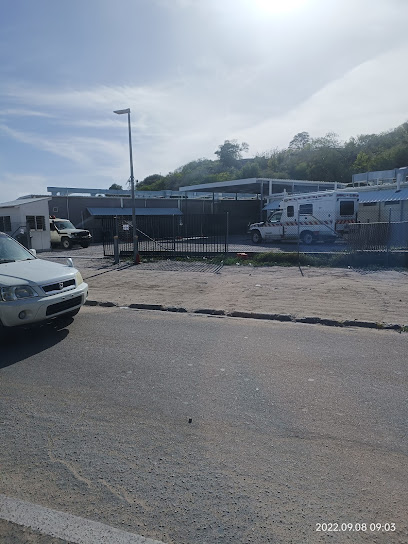
Parliament House
Explore the political heart of Nauru at Parliament House, a symbol of governance and culture in Yaren, showcasing the island's unique identity.
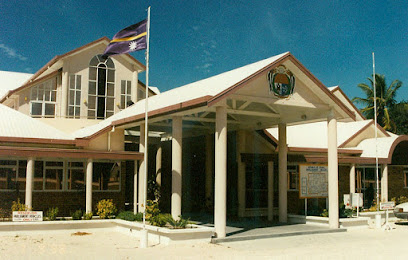
Nauru
Explore the serene beauty and rich culture of Nauru, the smallest island nation, where stunning landscapes meet warm local traditions.
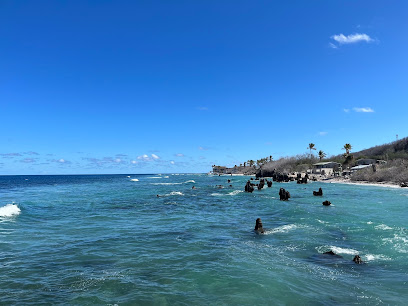
Anibare Bay
Experience the pristine beauty of Anibare Bay in Nauru, where crystal-clear waters and sandy shores create a perfect tropical getaway.
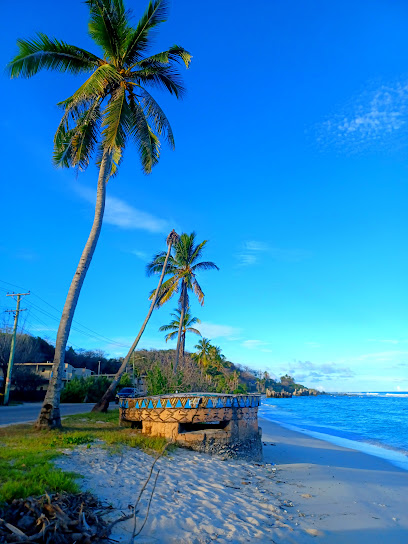
Naoero Museum
Explore Nauru's heritage at the Naoero Museum, a cultural gem in Yaren showcasing the island's rich history and traditions.
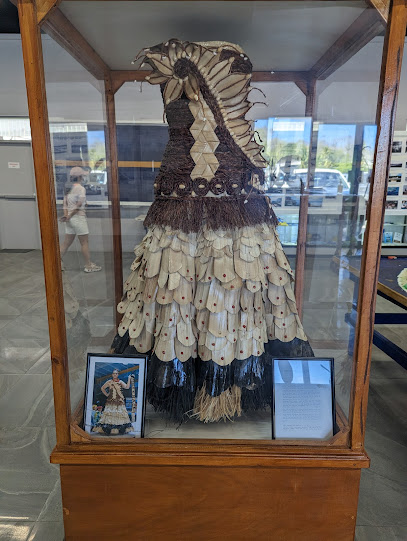
Somewhere Else in Nauru
Savor the authentic flavors of Nauru at Somewhere Else, a culinary haven that captures the essence of island dining.
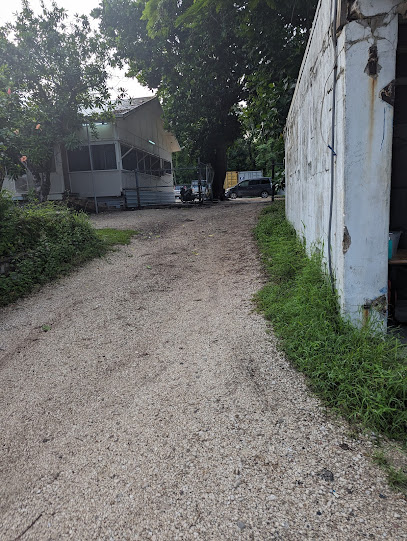
Command Ridge
Discover the breathtaking views and rich history at Command Ridge, Nauru's highest peak, where nature and heritage intertwine.

Unmissable attractions to see
Essential places to dine
The Bay Restaurant
Experience authentic Nauruan cuisine with stunning ocean views at The Bay Restaurant in Anibare.
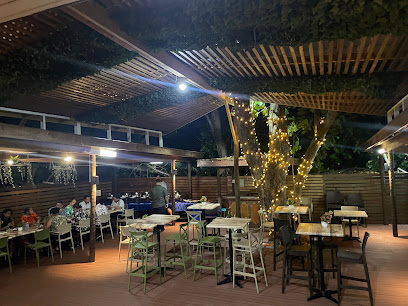
OMG Sushi Restaurant
Experience authentic Japanese cuisine at OMG Sushi Restaurant in Orro – A must-visit destination for sushi enthusiasts!
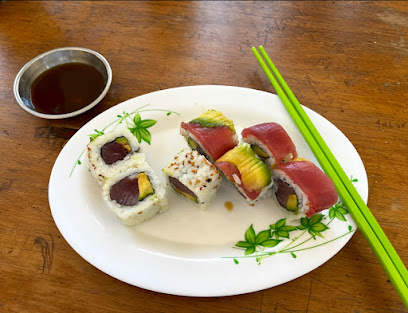
Mr Chippies
Experience authentic Nauruan flavors at Mr Chippies - where delicious cuisine meets a warm community atmosphere.
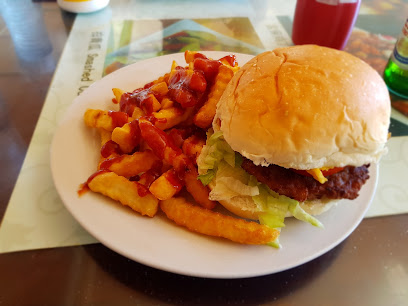
Star Kingdom
Experience authentic Asian cuisine at Star Kingdom in Boe – where every dish tells a story of flavor and tradition.
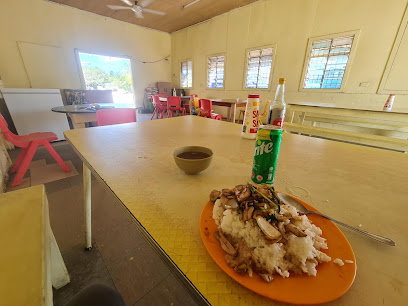
Chinese Restaurant Buada
Experience authentic Chinese cuisine at Buada in Arenibek – a culinary journey filled with vibrant flavors and welcoming atmosphere.

Praises Restaurant
Discover authentic Chinese flavors at Praises Restaurant in Anabar - a must-visit culinary gem for every traveler.
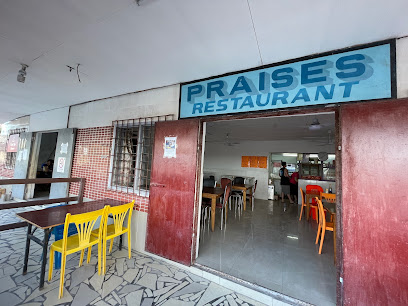
Anibare Boat Harbour Restaurant
Discover local flavors at Anibare Boat Harbour Restaurant with stunning ocean views in Nauru - A must-visit dining destination!
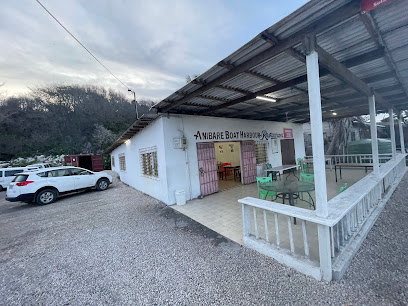
Florrowest Restaurant
Experience authentic local flavors at Florrowest Restaurant in Boe – where every dish tells a story.
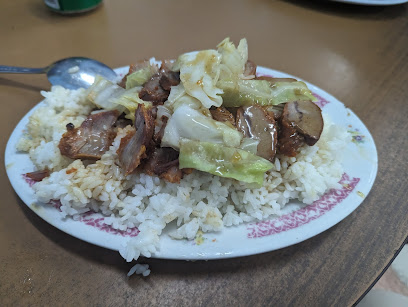
Somewhere Else in Nauru
Experience authentic Nauruan cuisine at Somewhere Else in Arijejen - where every meal is a celebration of local flavors.
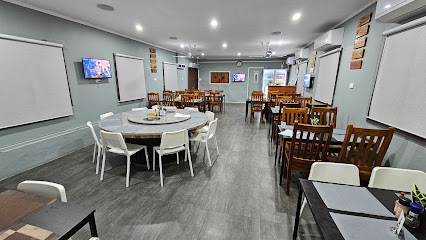
Moon River Restaurant
Discover authentic Chinese cuisine at Moon River Restaurant in Arijejen, where every meal is an unforgettable culinary journey by the waterfront.
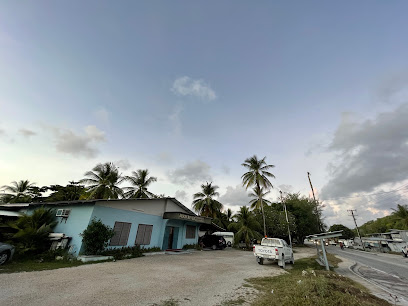
Lucky Tigeress Yum Cha
Discover the culinary charm of Arijejen with exceptional dim sum and breakfast delights at Lucky Tigeress Yum Cha.
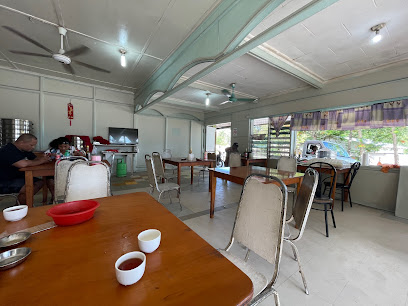
Jullem
Experience authentic Chinese flavors at Jullem in Anibare - where every dish tells a story of tradition and taste.
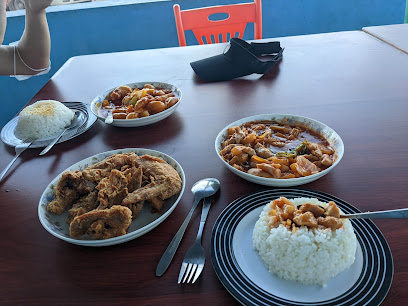
J’ RESTAURANT
Discover exquisite flavors at J’ RESTAURANT - Nauru's premier destination for authentic Chinese cuisine amidst stunning waterfront views.
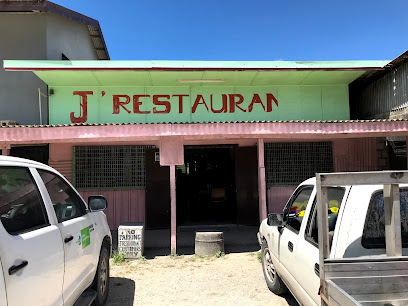
Double J
Discover the flavors of Ibwenape at Double J, where delightful cuisine meets warm hospitality for an unforgettable dining experience.
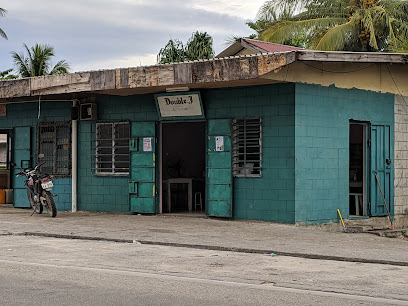
Crystal Kitchen
Discover the cleanest family-friendly restaurant in Nauru at Crystal Kitchen – where delicious meals meet warm hospitality.
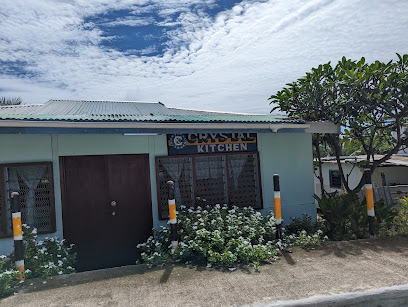
Markets, malls and hidden boutiques
Pacific store
Explore the vibrant flavors of Nibok at Pacific Store, your local grocery destination for fresh produce, local snacks, and culinary delights.
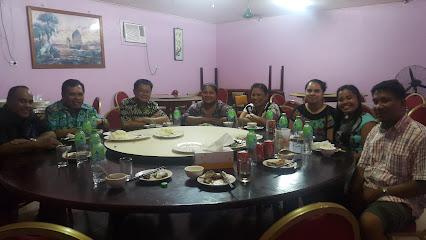
Zombies Store
Discover the quirky charm of Zombies Store in Yaren, your go-to destination for unique local souvenirs and essentials.

Vim No.1 Store
Explore Vim No.1 Store in Arijejen, Nauru for local groceries, unique snacks, and an authentic slice of island culture.
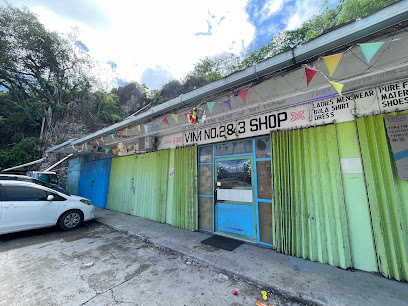
Ataro Bay Store
Discover local flavors and essentials at Ataro Bay Store, a charming grocery destination on Island Ring Road.
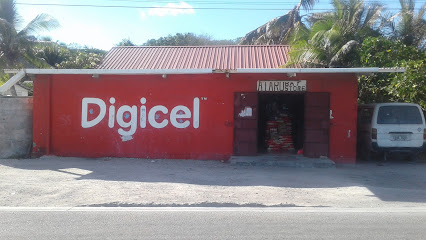
Elizabeth's Garden
Discover unique treasures at Elizabeth's Garden in Boe, where friendly service and local charm meet a delightful shopping experience.
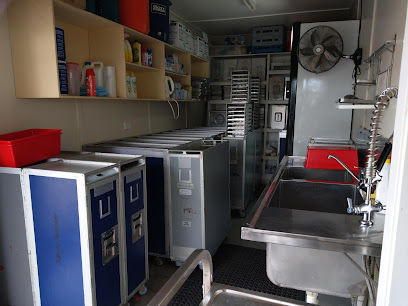
Sunset CornerEnterprise
Explore Sunset Corner Enterprise in Borderline for a taste of local culture and quality goods, perfect for travelers on the go.

Rainbow Store
Discover the convenience and charm of Baiti at the Rainbow Store, your go-to spot for snacks, beverages, and local goods.
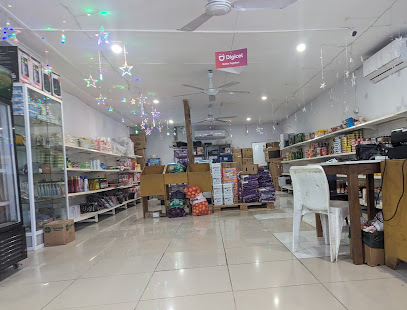
MyStore
Explore MyStore in Yaren for a taste of local culture, fresh produce, and unique shopping experiences that define the essence of the region.

Aredetõ Store
Explore Arenibek's Aredetõ Store for essential supplies and local treats, making your travel experience convenient and enjoyable.

Abwan Warehouse
Experience the charm of Abwan Warehouse, a home goods store in Nibok, Arijejen, offering unique local treasures and artisanal craftsmanship.

Halo Store
Explore Halo Store in Arenibek for unique souvenirs and local treasures that capture the spirit of this charming island.
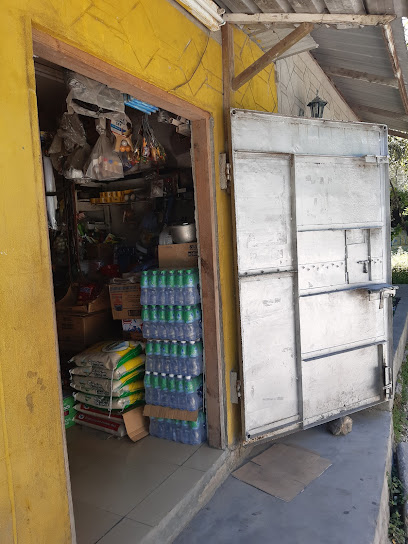
IJ Store
Explore the vibrant culinary scene at IJ Store in Ijuw, offering fresh local produce and unique international goods for every traveler.

3 in 1 Store
Discover the vibrant offerings of the 3 in 1 Store in Ronave, where local culture meets convenience in a unique shopping experience.

Paradise
Explore Paradise, a vibrant clothing store in Boe offering stylish apparel and unique accessories reflecting local culture and fashion trends.

Turtle Shop (Food and Drinks)
Discover Turtle Shop in Nibok, where exceptional coffee meets a cozy atmosphere, perfect for every traveler.
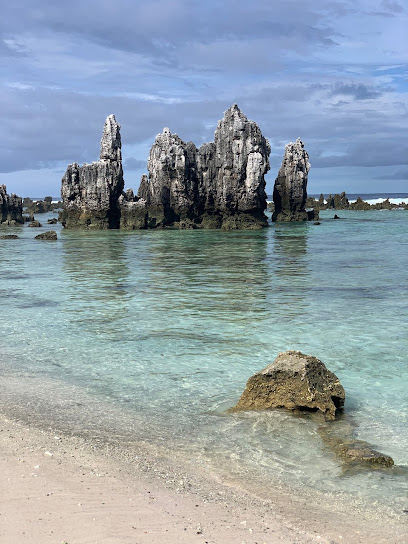
Essential bars & hidden hideouts
The Bay Restaurant
Experience exquisite dining with ocean views at The Bay Restaurant in Anibare, where local flavors meet international cuisine.
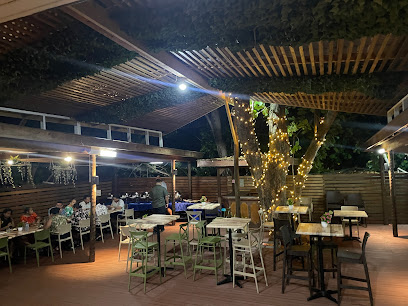
Jules On The Deck
Experience the vibrant nightlife at Jules On The Deck, a charming bar in Nibok offering stunning views and refreshing drinks.
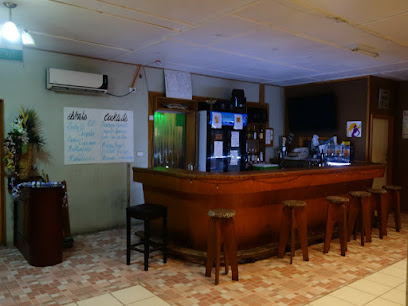
OMG Sushi Restaurant
Experience the freshest sushi in Orro at OMG Sushi Restaurant, where culinary artistry meets local flavors for an unforgettable dining experience.
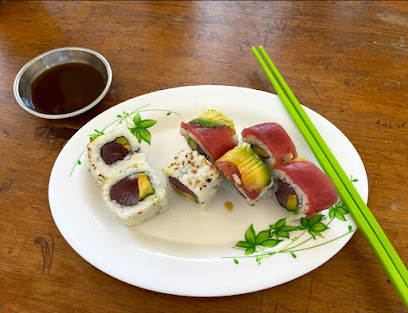
Reef Bar
Reef Bar in Anibare: A picturesque outdoor bar offering refreshing drinks and stunning beach views in Nauru.
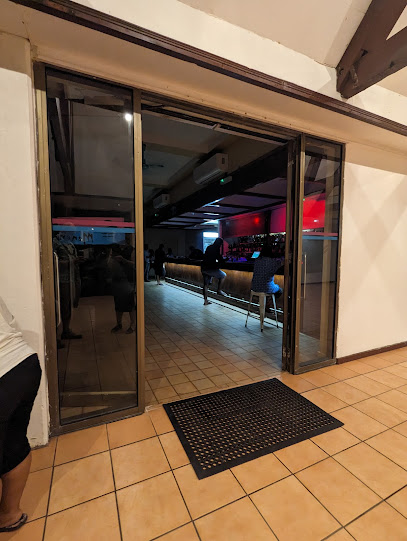
Mr Chippies
Discover the best seafood and local flavors at Mr Chippies in Anibare, where delicious dishes meet stunning beachside views.
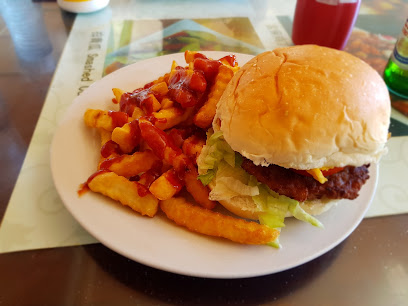
Star Kingdom
Experience the vibrant flavors of Asian cuisine at Star Kingdom, a charming restaurant in Boe, perfect for culinary adventurers and food lovers.
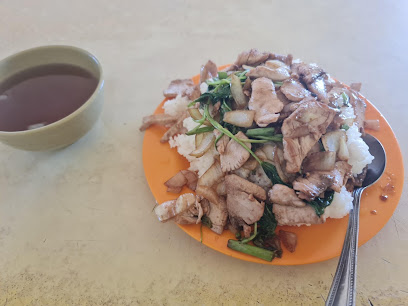
Anibare Boat Harbour Restaurant
Discover the flavors of Nauru at Anibare Boat Harbour Restaurant, where fresh seafood meets stunning coastal views.
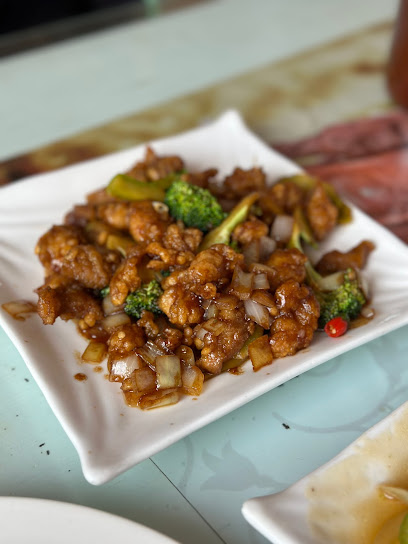
Somewhere Else in Nauru
Experience the taste of Nauru at Somewhere Else, a welcoming restaurant serving up authentic local flavors in a cozy atmosphere.
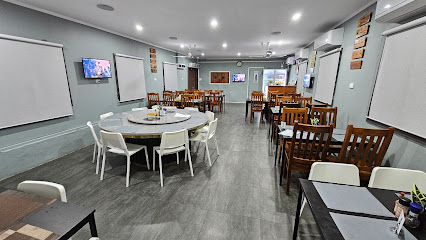
Jullem
Discover the vibrant flavors of authentic Chinese cuisine in Anibare at Jullem, where every dish tells a story.
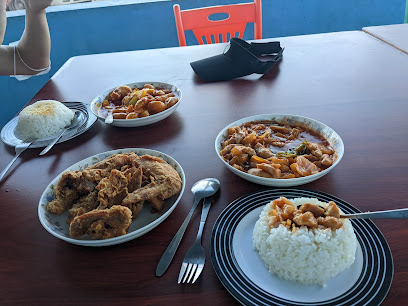
Double J
Discover the flavors of Ibwenape at Double J, where local ingredients meet culinary creativity for an unforgettable dining experience.
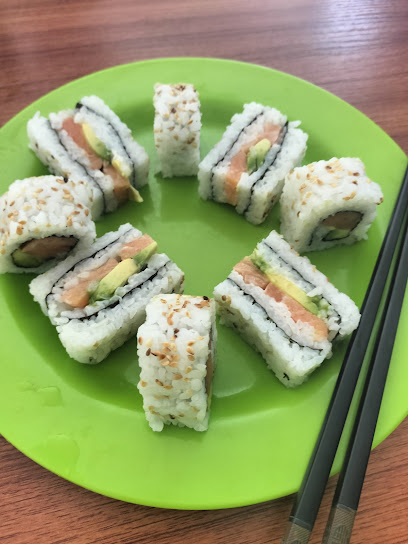
Crystal Kitchen
Experience the warmth of family dining at Crystal Kitchen, Anibare's top choice for delicious meals in a friendly atmosphere.
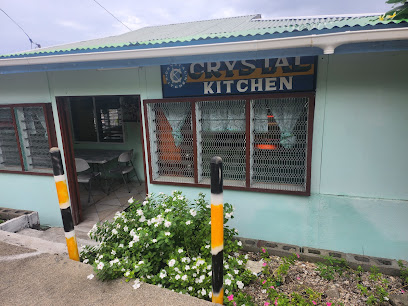
K-Love Restaurant
Experience the vibrant flavors of Yaren at K-Love Restaurant, where local cuisine meets warm hospitality.
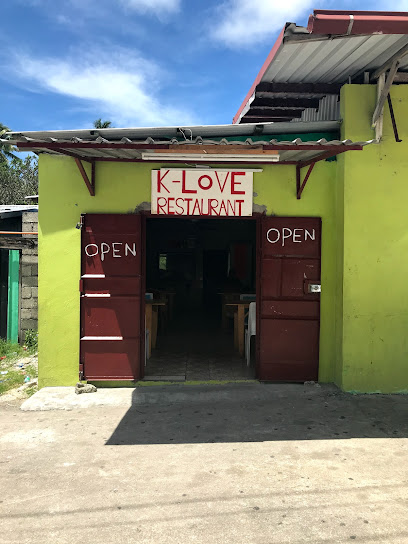
Sushi Restaurant
Experience the authentic taste of Japan in Ibwenape at this acclaimed sushi restaurant, where freshness meets tradition in every bite.
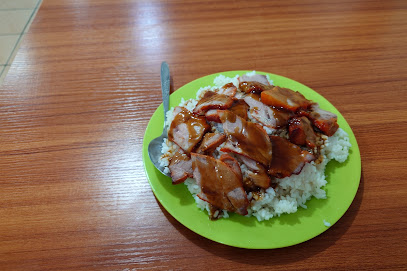
Milk Bar
Discover the creamy goodness of the Milk Bar in Yangor, where delightful milk-based treats await every visitor.
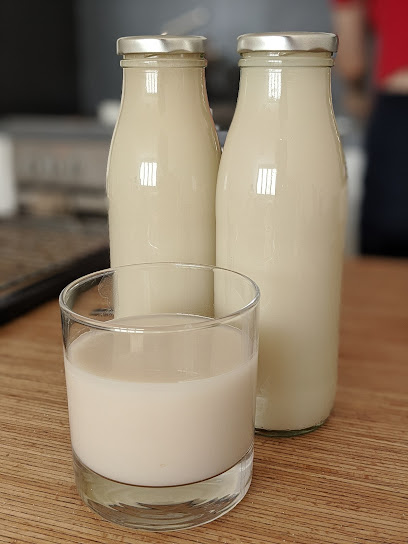
Local Phrases about Uaboe District
-
- HelloIaorana
[yo-ra-na] - GoodbyeKaore
[ka-re] - YesE
[e] - NoAe
[ai] - Please/You're welcomeFa'amalie
[fa-a-ma-lie] - Thank youFa'afetai
[fa-a-fe-tai] - Excuse me/SorryFa'amalie
[fa-a-ma-lie] - How are you?O ai oe?
[o ai oi] - Fine. And you?Lelei. O a?
[le-lei o a] - Do you speak English?E te leoleo i le fa'ainga?
[e te le-o-le-o i le fa-a-inga] - I don't understandE le mafai ona malamalama
[e le ma-fai o-na ma-la-ma-la-ma]
- HelloIaorana
-
- I'd like to see the menu, pleaseO a ou te fia vaega i le menu, fa'amalie
[o a ou te fi-a va-e-ga i le menu, fa-a-ma-lie] - I don't eat meatE le auai ma mea
[e le au-ai ma me-a] - Cheers!Manuia
[ma-nu-ia] - I would like to pay, pleaseO a ou te fia totogi, fa'amalie
[o a ou te fi-a to-to-gi, fa-a-ma-lie]
- I'd like to see the menu, pleaseO a ou te fia vaega i le menu, fa'amalie
-
- Help!Tulou!
[tu-lou] - Go away!Alu atu!
[a-lu a-tu] - Call the Police!Valaau i le Fa'amasinoga!
[va-la-au i le fa-a-ma-si-no-ga] - Call a doctor!Valaau i le foma'i!
[va-la-au i le fo-ma-i] - I'm lostUa o le taulima
[ua o le tau-li-ma] - I'm illUa ou matagofie
[ua ou ma-ta-go-fi-e]
- Help!Tulou!
-
- I'd like to buy...O a ou te faatau...
[o a ou te fa-a-tau] - I'm just lookingO a ou te vaai
[o a ou te va-ai] - How much is it?O le a le totogi?
[o le a le to-to-gi] - That's too expensiveO lelei le totogi
[o le-lei le to-to-gi] - Can you lower the price?E mafai ona fa'atagofie le totogi?
[e ma-fai o-na fa-a-ta-go-fi-e le to-to-gi]
- I'd like to buy...O a ou te faatau...
-
- What time is it?O le a le taimi?
[o le a le tai-mi] - It's one o'clockO le tasi
[o le ta-si] - Half past (10)Itula i le (10)
[i-tu-la i le (10)] - MorningI taeao
[i ta-ea-o] - AfternoonI le aoauli
[i le a-o-au-li] - EveningI le po
[i le po] - YesterdayAnanafi
[a-na-na-fi] - TodayLenei aso
[le-nei a-so] - TomorrowAso
[a-so] - 1Tasi
[ta-si] - 2Lua
[lu-a] - 3Tolu
[to-lu] - 4Fa
[fa] - 5Lima
[li-ma] - 6Ono
[o-no] - 7Fitu
[fi-tu] - 8Valu
[va-lu] - 9Iva
[i-va] - 10Ivafulu
[i-va-fulu]
- What time is it?O le a le taimi?
-
- Where's a/the...?O fea se/le...?
[o fe-a se/le] - What's the address?O le a le tuatusi?
[o le a le tua-tu-si] - Can you show me (on the map)?E mafai ona fa'amatala ia te au (i le mapa)?
[e ma-fai o-na fa-a-ma-ta-la ia te au (i le ma-pa)] - When's the next (bus)?O le a le aso o le faaiga i tua?
[o le a le a-so o le fa-a-i-ga i tua] - A ticket (to ....)Tiketi (i le ....)
[ti-ke-ti (i le)]
- Where's a/the...?O fea se/le...?
History of Uaboe District
-
The Uaboe District, like the rest of Nauru, was originally settled by Micronesian and Polynesian peoples over 3,000 years ago. The district's name 'Uaboe' is derived from the indigenous Nauruan language. The early settlers lived a subsistence lifestyle, relying on fishing and farming. They developed a rich cultural heritage, including unique forms of dance, music, and art, which have been passed down through generations.
-
In the late 19th century, European explorers and traders began to visit Nauru, including the Uaboe District. In 1888, Nauru was annexed by Germany and became part of the German colonial empire. The impact on the local population was significant as traditional ways of life began to change. German colonial administrators imposed new systems of governance, and Christian missionaries introduced new religious practices.
-
The discovery of phosphate deposits in the early 20th century transformed Uaboe District and the rest of Nauru. In 1906, the Pacific Phosphate Company began mining operations on the island. The extraction of phosphate brought economic opportunities but also led to environmental degradation and social changes. Many locals were employed in the mines, but the industry was primarily controlled by foreign interests.
-
During World War II, Nauru, including Uaboe District, was occupied by Japanese forces from 1942 to 1945. The occupation was a harsh period for the local population, with many people being forced into labor and suffering from shortages of food and medical supplies. Allied forces bombed the island heavily, causing widespread destruction. After the war, Nauru came under the administration of Australia, New Zealand, and the United Kingdom.
-
Nauru gained independence in 1968, and Uaboe District became part of the newly sovereign nation. The 1970s and 1980s were a period of prosperity due to high phosphate revenues. However, by the 1990s, phosphate reserves were nearly depleted, leading to economic challenges. Today, Uaboe District is a residential area with a mix of traditional and modern influences, reflecting Nauru's complex history and its ongoing efforts to diversify its economy and preserve its cultural heritage.
Uaboe District Essentials
-
Nauru does not have a large number of international flights, but you can reach Uaboe District by flying into Nauru International Airport. The airport is located in Yaren District, only a short drive from Uaboe. Flights are typically available from Brisbane, Australia, and some Pacific island nations. Once you arrive at the airport, you can take a taxi or arrange for a rental car to reach Uaboe District.
-
Getting around Uaboe District and the rest of Nauru is relatively straightforward. The island is small, so renting a car or a bicycle is a convenient way to explore. Taxis are also available but may be limited, so it’s advisable to arrange transportation in advance when possible. There is no public bus system, but walking is a viable option for shorter distances.
-
The official currency of Nauru is the Australian Dollar (AUD). Credit cards are not widely accepted, so it is essential to carry cash for most transactions. There are limited ATM services on the island, primarily located in the Aiwo District, so it is recommended to withdraw sufficient cash upon arrival.
-
Uaboe District is generally safe for tourists, with low crime rates. However, it is always wise to remain cautious and practice standard safety measures. Avoid walking alone at night in poorly lit areas and keep an eye on your personal belongings. There are no specific neighborhoods in Uaboe known for crimes targeting tourists.
-
In case of an emergency, dial 110 for police assistance and 111 for medical emergencies. The Republic of Nauru Hospital in Denigomodu District is the primary medical facility on the island. It is advisable to have travel insurance that covers medical emergencies. Pharmacies are available for minor health issues, but the selection may be limited, so bring essential medications with you.
-
Fashion: Do dress modestly, especially when visiting local communities and religious sites. Avoid wearing overly revealing clothing. Religion: Do respect local customs and traditions. While Nauru does not have many formal religious sites, being respectful in community spaces is important. Public Transport: As there is no public transport system, do be courteous if you use taxis or shared rides. Greetings: Do greet locals with a friendly nod or a handshake. A warm 'hello' goes a long way. Eating & Drinking: Do try local dishes and accept food graciously if offered. Don’t waste food, as it is considered disrespectful.
-
To experience Uaboe District like a local, visit the coastal areas for fishing and enjoy the serene beaches which are less crowded than other parts of the island. Engage with local community events and celebrations if you have the opportunity. Don’t miss the chance to try traditional Nauruan dishes such as coconut fish and fresh seafood. Respect the slow-paced lifestyle and take time to appreciate the natural beauty and tranquility of the district.
Trending Landmarks in Uaboe District
Nearby Cities to Uaboe District
-
Things To Do in Buada
-
Things To Do in Denigomodu
-
Things To Do in Anibare
-
Things To Do in Ijuw
-
Things To Do in Aiwo
-
Things To Do in Anabar
-
Things To Do in Boe
-
Things To Do in Yaren
-
Things To Do in Kosrae
-
Things To Do in Mili
-
Things To Do in Majuro
-
Things To Do in Aur
-
Things To Do in Lata
-
Things To Do in Auki
-
Things To Do in Tulagi





